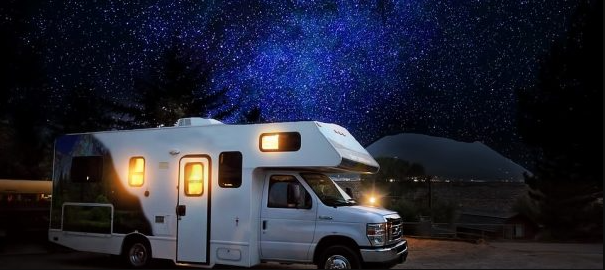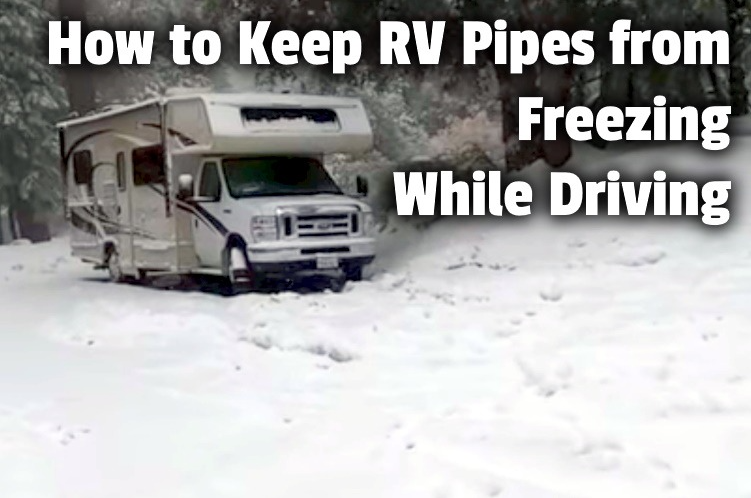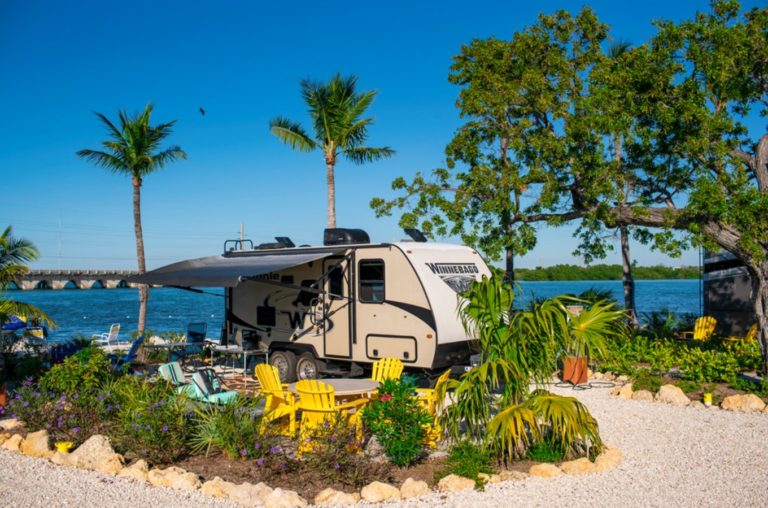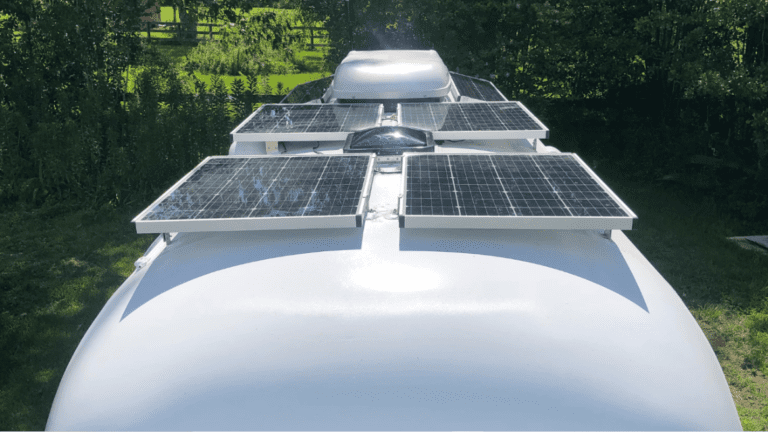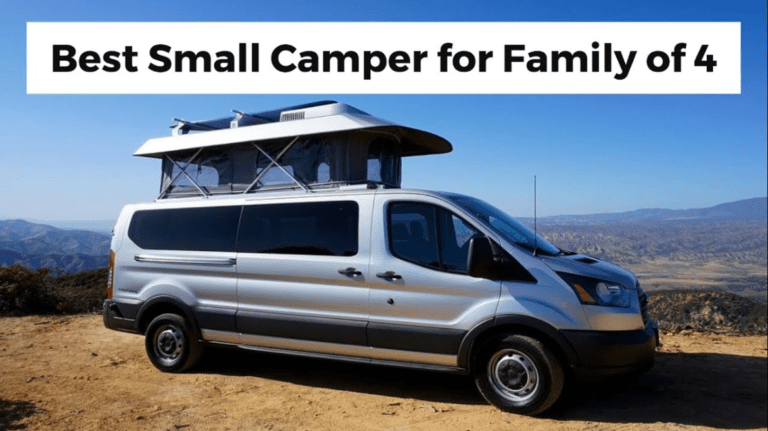Questions to Ask When Buying a Used Travel trailer

Travel trailer are generally depreciating vehicles and so many people go for used travel trailers or motorhomes. It makes sense to get your first travel trailer or travel trailer as a pre-owned one because a brand-new trailer can cost a lot. A new Class A travel trailer or Class C travel trailer can cost thousands of dollars and more. Even after paying so much money, you can’t get an ideal one. And so, a used TRAVEL TRAILER is a great option to try. The used travel trailer or travel trailer market is also huge and therefore you get a lot of options.

So, you’ve almost decided to buy a used travel trailer? It may come at a lower price, but it can also turn out to be a bad deal. You need to make sure that the pre-owned travel trailer is in good condition. For this you have to ask the owner different questions. Let’s review the 11 most important questions you should ask the owner when checking out atravel trailer on your first visit. This guide will also indirectly answer the second question “What to look for in a used travel trailer or travel trailer”.
How many people have owned a travel trailer before?
The person you are buying from does not necessarily have to be the original owner. I have seen people make this mistake many times. A neighbor of mine who bought a fifth wheel a few months ago didn’t know he was buying atravel trailer that had originally been owned by 3 more owners. He came to know about it on the day of the deal.
While it’s perfectly fine to buy a multi-ownership travel trailer, some things may not be best for you. You may not know the full history of a travel trailer or travel trailer. And deciding on an overall travel trailer can be bad for you.
You won’t know the full maintenance history, whether the tires were changed on time or not. Knowing the individual and family who owns the travel trailer can give an accurate estimate of how much the travel trailer was used. Also, where the owner of the travel trailer lived can make a difference. Understanding the travel trailer owner can play a role in knowing a few other things.
A young couple without children may use atravel trailer more often where a working couple with children may not be using it as often. Remember atravel trailer or travel trailer stays in good condition when it is used more often. Being in a garage for months on end can be bad for it. Atravel trailer that is driven more often will require less maintenance than one that sits in place for several days. Oiling, and other maintenance would be difficult.
The best thing to do is to put this question to the immediate owner and ask about all previous owners of the travel trailer. If you’re not satisfied with the answers, it’s best to think twice about going ahead with the deal. Remember, even though you may be paying much less than the price of a brand-newtravel trailer, it makes a big difference because the travel trailer will have maintenance costs and other expenses.
Ask for all the details related to the maintenance records of the travel trailer.
This is going to be another question in your buying a used travel trailer checklist. Maintaining atravel trailer or travel trailer is more important than people think. A well-maintained trailer can last for many years. Here’s my complete travel trailer maintenance checklist (it covers everything from the trailer’s tires to its roof. Many of us overlook some of these)
As a buyer, ask this question directly to the owner and ask about all the details. Ask for all receipts and papers, all maintenance bills.
A family relative of mine who bought a travel trailer a few years ago told me about his experience. He got all the documentation and even the smallest repairs that were done. Awning repair, tire change, floor cleaning every little repair and change was supported with bills and papers. He was surprised at the type of details he obtained and the type that confirmed the accuracy of the maintenance records. It gave him confidence and the deal looked good even though he was paying a bit more.
Documentary confirmation should be your priority over word of mouth. Travel trailers are more prone to damage and require repairs, especially in the winter. Cleanliness is also important and can quickly become serious and irreversible if neglected. Storing awnings, covering the trailer when not in use, is important.
An owner who doesn’t keep extensive maintenance records can overlook overall travel trailer maintenance. Ask how tire pressure is maintained and how often the travel trailer is weighed. Inquire about the repair dealer where the owner has previously serviced and check for authenticity. Get details about repair or replacement in case of tanks.
Ask about the roof’s condition and previous maintenance or replacement.
The roof is very important in a travel trailer or any RV. A leaking roof will give you nightmares. Fixing a leaking roof can be a difficult and very difficult task. Realize that a roof that’s already leaking means you’ll have similar problems going forward unless it’s completely replaced.
Make sure you ask the owner specifically about this different question and ask about all the details such as roof leaks or whether any maintenance was done on the roof. Roof leaks are one of the reasons many people sell their RVs and you definitely don’t want to buy one. Another fact is that people buy rv’s like this because you can’t tell if the roof is leaking or not. You only notice a leak when it starts to rain.
Even the walls or windows of a travel trailer can leak water. Finding such defects in walls can be difficult as they can be hidden. The best thing to do is take your time analyzing the RV. Don’t be in a hurry and don’t go for looks. A good-looking RV doesn’t have to be leaky.
A travel trailer roof or any other RV roof definitely has an age limit and if you are buying that 10–12-year-old RV or trailer, be extra careful. An older RV is definitely prone to leaks unless the roof is well maintained. Not all older RVs will have this problem, but there is a good chance it will.
An owner who is taking good care and storing the trailer in a proper covered garage should be fine. It all depends on how the travel trailer is maintained. Understanding the roofing material can also be a good thing. You get a travel trailer that can have rubber, fiberglass or aluminum roofs. Fiberglass roofs are low maintenance but more expensive. Rubber roofs are more common but require a little more maintenance. You can ask the owner these questions and see if the owner is familiar with the content used.
An informed owner will be in a good position to understand what type of maintenance is required. If you find that the owner is in a position to explain these things, you may be buying from a good owner who has taken good care of the roof. However, this may not always be a guarantee but a type gives you some reassurance. I say this because the maintenance items you use will be different for the roofing material.
- Roof – Many RVs have a soft EPDM rubber material. Check for damage from contact with tree branches, UV light, or fungus. Check all seams for caulking. Ask questions.
- Roof holes – Check for physical damage from contact with branches or deterioration from UV light.
- Gutters – Dirty marks on the sides of the RV indicate blocked or damaged roof gutters.
Ask about travel trailer tires.
Ask about travel trailer tires. You should be able to physically verify this, yet be sure to know when the tires were changed. Try to get the receipts for the new tires that were fitted. RV tires have a limited lifespan and need to be replaced periodically.
This is not directly dependent on how much the rv has been used or traveled but it depends on other factors such as roads, and how the rv was protected overall during winter and snow. Check out how long travel trailer tires typically last (both in miles and years) and when you should replace them here.
Generally, a travel trailer tire lasts about 4-5 years but people use it for more years. But this can be a bad thing and you should replace them in time. So, make sure to ask this question beforehand and get detailed answers.
In addition to asking these questions, it’s only logical to check how much tread is left in the tire, and if you think the tires won’t last much longer than that, carry out the discussion.
Try to negotiate the price of tires that will need to be replaced soon. As a new owner you’ll want tires that fit and thus assume you’ll be replacing tires immediately. As a new driver you should be comfortable with the rv, the current owner may be used to it or may not drive the RV for months, so just make this aspect a priority. Check for dry cracks inside and outside the tires, even small cracks can cause a blowout so be careful.
How many miles are on the tires? When was the last time they changed?
If you get maintenance records from the previous owner, you can probably learn this easily.
This is especially important if you are buying a used Class A RV. Class A rigs have very expensive tires and replacing them is like college tuition. This summer, we noticed an alignment issue and our front two tires were wearing unevenly. They needed to be replaced immediately. Fortunately, it was all under warranty as the bill came to $300 per tire. Oh, check the tire carefully! This is less of a problem with Class C’s, B’s or trailers that have tires similar to trucks.
Even if you don’t know much about tires, checking tread is very easy. Do they look tired and sun damaged? If so, they probably don’t have much life left in them. Do some research on how much it will cost to replace all the necessary tires and then ask for a discount off the price of the RV.
Ask about the equipment in the travel trailer.
The fifth point on your used travel trailer checklist is the equipment inside the camper. RV equipment is an important part of your camping experience. They are also expensive and you cannot take it for granted. Ask about the current condition of all the equipment that the owner mentioned. Ask the owner to run the refrigerator before arriving to check it. It will take some time to cool down so make sure it is switched on at least 2-3 hours before you arrive to check the camper or motorhome.
Many times, when you start the refrigerator works for a while but then it doesn’t cool down so it’s best to check it properly. Also, when you start it up, it might turn on the light but won’t cool down at all and then it won’t do any good. Make sure it is not accumulating too much ice in the deep freezer. If the interior door is broken or not fully locked, ice can accumulate on its surface and that is a very bad thing.

The same goes for other appliances like air conditioners, televisions or any other appliances to give away. Make sure you turn on and check the functioning of all other devices.
Check if the heater is working or not, such devices will take time to activate and show results. Thus, take your time and see the workings in practice. You should negotiate the prices depending on the function of the equipment. Appliances that are not working should not be on the entire trailer or RV deal. But if so, you can always try to lower the price of the deal. Often owners will quote more depending on the number of appliances included, but if you feel the appliances are not worth it, you should clarify immediately.
Ask about pets that have lived in the RV.
Another point to consider is pets. Some people are allergic to certain smells or pets. You may also be allergic to certain pets. But, even if not, it is better to know about all the pets that live there. It’s not that pets make it worse, but sometimes the things used with pets can make the RV smell bad.
Not all people will be ready to live with pets and thus the only point you should ask. Usually, when the owner is showing you the rv it won’t smell, but you may have this problem later when you start living inside. It’s also a good idea to check if the owner or any of his RV users were smoking inside.
Ask about batteries used in travel trailers.
Batteries are important in campers and you should be aware of all the ins and outs of them. Ask the owner if 12 v or 6 v batteries are used. Check if the batteries are connected in parallel or series. Some other things you should verify include whether or not the batteries are deep cycled.
A battery is able to run many things in the rv and thus check what all the things in the trailer are running on. Check whether the inverter is installed or not. If yes, how long does it work on average?
Check the age of existing batteries. Batteries typically last about 4-5 years in an rv. It is very important that they are properly maintained otherwise they may not function well. Ask about the type of water that was used for the batteries. Check the brand type of battery and whether batteries of the same type are connected together or not.
Ask about the generator.
A generator is essential in an RV or travel trailer if you go boondocking or dry camping. Clarify if the owner is willing to provide a portable generator with the travel trailer. Or check if the travel trailer has an inbuilt generator. Most travel trailers are not equipped with a built-in one. Motorhomes like Class A or Class C RVs come with built-in generators.
Check the brand of portable generator, ask about how noisy it is. Generator noise is a very annoying thing and you definitely don’t want one that makes a lot of noise. A good thing would be to run fast and listen to the noise.
Also, an item of evidence would be to run different things on the generator. The more load you put on the generator, the noisier it will be. Try to run things like you would while camping.
Ask about the wattage of the generator and the wattage of the appliance. The generator’s maximum wattage rating must be greater than the sum of all appliance watts. 3000 watts may not be good for running all appliances especially if you are using dual AC and other things together.
Also check the fuel consumption of the generator. Usually, RVs or campers give less miles per gallon and on top of that it will be worse if you have a less efficient generator.
Ask for details about the tanks in the camper.
Fresh water tanks and holding tanks are especially important in a travel trailer or any type of RV when you are not connected to any hookups. Dry camping depends on the size of these tanks. These tanks in a travel trailer can be of different sizes and you cannot estimate the average size.
Ask about the size of each tank (grey tank, black holding tank and fresh water tank). Ask if the owner has ever needed a portable tank while camping, this will give you a fair idea of the tank’s capacity. Check how often the tanks were cleaned, keeping fresh water tanks clean is very important.
It also ensures that the tank’s sensors are working properly. Many times, the holding sensors are not working and it is very unreliable. Paying attention to these small details will make all the difference and you won’t end up with an RV that has so many flaws about the features that matter most.
Used towing car and its MPG
Ask about what type of car was used to pull the trailer. Check what the mpg of the car with the trailer was. You may not get all the answers to the point but try to get as much information as possible. Find out about what the journey was all about in the trailer. Whether the trailer was properly winterized or not. Ask about where the owner lives the most. Harsh weather can have an adverse effect on rvs if they are not properly stored or covered.

Ask for reason for selling.
This is a valid question any new buyer should ask a seller. Ask for reasons for selling a travel trailer or motorhome. It is better to know the reasons before than to find them later. There can be various reasons for selling a travel trailer. One can upgrade to a larger motorhome such as a Class ARV or Class CRV or even a fifth wheel. Or someone just getting away from the RV lifestyle.
Or the owner may be having issues with the travel trailer, which is what you need to get hold of. Many owners would be willing to go to the trouble of building a trailer and you don’t want to go ahead and own this RV. If you’re lucky and the owner irons out all the problems, you can think about the deal with more insight and avoid the deal if things are worse or could get worse. Knowing the reason from the owner’s side can help a lot in deciding whether or not to buy a travel trailer or RV.
Does the person who shows you the RV actually own it?
First, make sure your contact actually owns the RV. The first-Class C motorhome we saw was shown to us by the father of the man who owned the rig. He had no answers to our questions nor did he have any control over the price of the RV. He wasn’t able to tell us how it was stored, how often it was driven, or show us any maintenance records.
Unless the owner is deceased or you are buying from a used RV dealer, make sure you can ask the owner questions about the RV directly.
Do they have maintenance records?
Maintenance records are the holy grail of buying a used RV. We were promptly told that the transmission had been replaced in 2012 and that the cab of the RV had major leaking damage and had to be completely replaced.
Each previous owner of the RV had carefully documented all maintenance records. This showed us that they were responsible enough to get things right (as well as keeping records) and gave us confidence knowing that things were maintained.
Check everywhere for water damage.
Inspect the roof and around all windows. Press on the walls and feel for soft spots that may indicate previous or ongoing water damage. Water damage is – in my opinion – the number one reason not to buy a used RV. If it has water damage, save yourself now and don’t buy it.
Why the reason? Often times it’s hard to see how bad water damage is until you start digging into the wall. A small soft spot can actually hurt more than you realize.
After buying our RV, we found a soft spot in the bottom left corner of a window, behind a dining room chair. It was impossible to find the spot because the chair permanently blocked the area, but after a big storm in Nebraska, we noticed a small puddle of water on the floor. This leak became a constant headache for us and a great lesson in properly sealing an RV. (We highly recommend all RVers travel with Eterna bond tape, the seal of the gods.)
- Check floor-to-wall edges in kitchens, bathrooms, toilets, and under-storage areas. Look for mildew or black spots.
- Check the bathroom and kitchen counters. Check countertops for swelling or missing edges.
- Storage areas give a good indication of leakage. Look for telltale scars.
- Check floors under windows, near kitchens and bathrooms for soft spots.
- Check all window seals inside and out.
- Carpet and laminate floor covering. Look for swelling.
Press all buttons.
Start the engine (when applicable). Turn on every light. Check the outside clearance lights and brake lights. Turn on the generator (when applicable). Level up the jacks. Turn on the hot water heater. Test the water pump. Turn on all faucets. Test each feature to make sure it works. The last thing you want is to boondock for a weekend and find out your water pump is broken.
Stand in the shower.
I’m really serious about it. I never showered in Franklin unless it was necessary. The shower was too small to be comfortable. Also, my first shower experience was less than stellar and I swore off showers ever since. Stand in the shower and see if you can handle it. While it may seem useless now, you’ll be glad to have a rig with a nice shower three months down the road, trust me. This is doubly important for tall people!
Check the bottom of the unit for damage, rust, etc.
At Franklin, we (mostly Heath, ahem) scraped our backends on such steep driveways that we uncovered metal wheels designed to keep your rear end from dragging. When we sold our RV, the wheels were nothing but semi-circles. While not a deal breaker for a buyer, be sure to note the RV’s undercarriage and how it’s been maintained. Look for rust, cracks, completely worn wheels, etc.
Ask what animals live in the RV and for how long.
Heath is very allergic to cats, so this is a must for us. You can usually pick it up by the smell, but it’s important to ask if you’re allergic. I also always ask about smokers, as I am allergic to smoking.

Ask for a test drive.
Most owners will let you take the rig for a test drive. If they don’t, don’t buy it. Big red flag. Take the rig out on the open road (especially if it’s your first time driving an RV!) and gun it down. See how the rig handles different speeds, how it handles turning, braking, leaning, etc.
Also, watch how you play it. Does it feel too big for you, or something you can adjust to? If you plan to take the rig to national parks with mountains, drive it up a few hills and listen to the engine (typical for motorhomes). Does it get too hot or cry in protest? Remember that the rig you are testing is likely empty and will be too heavy to carry all your gear, family and full tanks of water.
Listen (or listen to whoever watches the rig with you) for things that shake and move as the rig moves. This can be frustrating. I know a couple who bought a Thor and had an entire cabinet come off the roof and fall to the ground while driving. So, listening to these noises can be important!
Ask for an inspection.
Worth every penny — and possibly less than $200. Ask the owner if you can have the rig professionally inspected before you buy. We didn’t buy a truck camper because we made that request and were flat out denied. If the owner isn’t hiding anything, they’ll likely admit it. This is mostly good for your peace of mind about buying a used RV. If your rig passes the third-party inspection, I’d say you’re ready to start negotiating on price.
For your inspection, arrange to engage the following services with the seller:
- Charge a 12-volt battery.
- Connect the shore 120 VAC electrical service cable.
- Propane in tank
- Water in fresh water tank
- Connect the town water hose to the trailer.
- Connect the sewer line.
Can you extend the warranty?
Depending on the RV, you may be able to purchase an extended RV warranty for your used rig. I recommend a company called Wholesale Warranties that can get you a quote for extended coverage. This will be an additional cost, but it can be a good option for peace of mind and ultimately save you money on costly repairs. If you buy used from a dealership, they may also offer a warranty for the purchase.
Inspection of 12 VDC and 120 VAC electrical systems
- RV batteries provide 12 VDC power. They are charged from the tow vehicle’s alternator, usually via a fuse in the tow vehicle. When plugged into the mains, a 120 VAC/12 VDC converter charges the batteries. Ask the dealership to confirm that the charging systems are working.
- Check battery external condition and water level (if applicable). It’s best if you replace RV trailer batteries about every four years. Ask the dealer for a new battery.
- Inspect main trailer/truck electrical connection cable for damage (if applicable).
- Operate light switches or appliances individually.
- Ask the dealership to confirm that all outlets are working.
- Run each tool to determine that it does its job.
- AC unit
- Don’t forget ceiling fans — and kitchen fans that may be part of the microwave.
- Check electrical operation of refrigerator and water heater.
- Check the operation of the microwave and any portable appliances such as TVs and multimedia devices that come with the sale price.
- Central vacuum If installed, check that all connections work.
How to Inspect a Propane System
- Propane system. Ask the dealer for a certified gas inspection certificate before purchasing. Make sure the inspector checks all burners, system pressure and regulator.
- Propane heater. This should be part of the certified gas inspection certificate. Check with the dealership before purchasing.
- Propane/electrical fridge freezer. This should be part of the certified gas inspection certificate. Check with the dealership before purchasing.
- Kitchen stove. This should be part of the certified gas inspection certificate. Check with the dealership before purchasing.
- Check the age of gas bottle date codes. Ask the dealer for clarification. More information on feral gas
- Carpet and laminate floor covering. Look for swelling.
- In Canada, it is illegal to refill a free-standing propane bottle if it is more than 10 years old. The maximum lifespan of a tank in the US is 12 years. In Mexico, it must be a tank. (Personal experience)
How to Find That Perfect Diamond in a Rough Used Camper
There are several ways to choose a camper that is right for you and your family. Before you begin your search, you need to determine a few things first:
- What kind of RV lifestyle do you want to live? Glamping, back-to-basics, or somewhere in between?
- Do you want to tow or drive your RV?
- How often are you going camping? Weekend, part-time, or full-time?
- Do your daily life and finances allow you time, money and effort?
- Can you keep up with preventive maintenance and repairs?
We don’t mean to throw cold water on your dreams, but you need to understand the realities of the RV lifestyle. It’s fun and exciting, but it comes with certain responsibilities that can turn a dream into a reality. This is why we always recommend renting through Outdoorsy or other peer-to-peer RV rental companies to try before you invest in your coach.
Finding the RV of your dreams is easier now that you’ve experienced renting and know what kind of RV lifestyle you want to live. You have all the search criteria you need to start a proper search. You can use websites like RVtrader, RVT, Craigs List, and others to look for different listings throughout your area.
Should I purchase an extended warranty for my camper?
Yes – but not from the dealership! Unfortunately, your chances of suffering a major mechanical breakdown increase with each passing year. Based on RV warranty claims records, more than 3 out of every 10 RVs will need major repairs in just the second year on the road. This rises to 8 out of 10 in their fifth year, and virtually all of them in their eighth year! Today’s RVs are becoming increasingly more complex, and with more things going wrong, the need to protect your investment is more important than ever.
Our RV warranty plans allow you to change your mind! If you want to sell your RV to a private party, you can transfer the policy to the brand-new owner. Additionally, if you are trading in your RV, or getting out of RVing altogether, you can cancel your policy for a pro-rated refund.
We purchased the warranty through Wholesale Warranty for several reasons:
- We can cancel the warranty at any time and get a pro-rated refund.
- If we decide to sell our RV, we can transfer the warranty to the new owner.
- There are no mileage caps on our policy.
- We can use repair shops all over the country.
- We can use a mobile repair company at our campsite.
- The price is better than most dealerships.
- We can finance the cost of the warranty.
- With parts and labor costs rising all the time, we have peace of mind.
At least you owe it to yourself to check the warranty and get a free quote to see if it’s right for you. It only takes a few minutes and you’ll learn a lot about protecting your investment. We only recommend products we use ourselves and we recommend you get a free quote from Wholesale Warranties.
